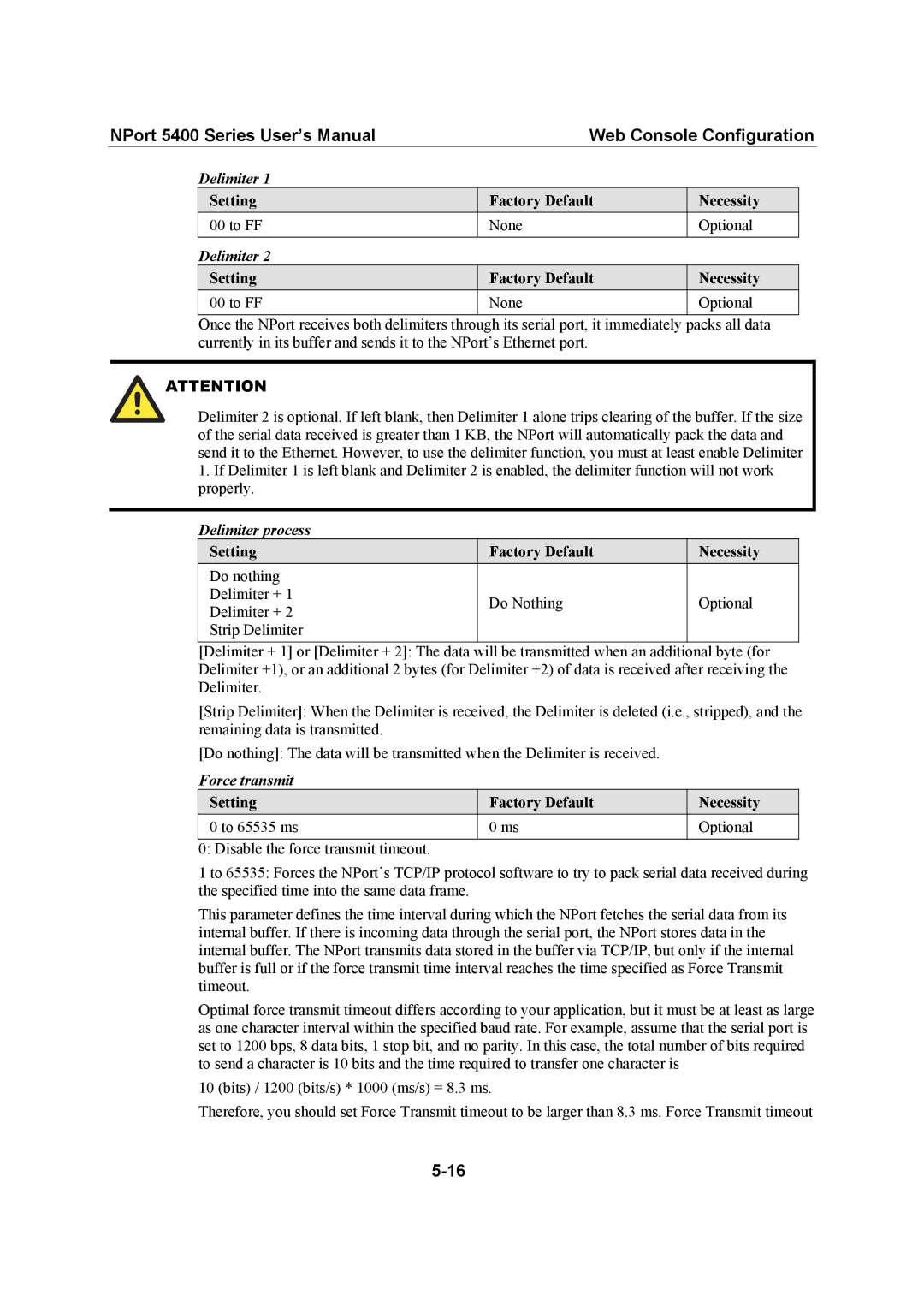
NPort 5400 Series User’s Manual | Web Console Configuration | |||
| Delimiter 1 |
|
|
|
| Setting | Factory Default | Necessity |
|
| 00 to FF | None | Optional |
|
|
|
|
|
|
| Delimiter 2 |
|
|
|
| Setting | Factory Default | Necessity |
|
| 00 to FF | None | Optional |
|
Once the NPort receives both delimiters through its serial port, it immediately packs all data currently in its buffer and sends it to the NPort’s Ethernet port.
ATTENTION
Delimiter 2 is optional. If left blank, then Delimiter 1 alone trips clearing of the buffer. If the size of the serial data received is greater than 1 KB, the NPort will automatically pack the data and send it to the Ethernet. However, to use the delimiter function, you must at least enable Delimiter
1.If Delimiter 1 is left blank and Delimiter 2 is enabled, the delimiter function will not work properly.
Delimiter process
Setting | Factory Default | Necessity | |
Do nothing |
|
| |
Delimiter + 1 | Do Nothing | Optional | |
Delimiter + 2 | |||
|
| ||
Strip Delimiter |
|
| |
|
|
|
[Delimiter + 1] or [Delimiter + 2]: The data will be transmitted when an additional byte (for Delimiter +1), or an additional 2 bytes (for Delimiter +2) of data is received after receiving the Delimiter.
[Strip Delimiter]: When the Delimiter is received, the Delimiter is deleted (i.e., stripped), and the remaining data is transmitted.
[Do nothing]: The data will be transmitted when the Delimiter is received.
Force transmit
Setting | Factory Default | Necessity |
0 to 65535 ms | 0 ms | Optional |
|
|
|
0: Disable the force transmit timeout.
1 to 65535: Forces the NPort’s TCP/IP protocol software to try to pack serial data received during the specified time into the same data frame.
This parameter defines the time interval during which the NPort fetches the serial data from its internal buffer. If there is incoming data through the serial port, the NPort stores data in the internal buffer. The NPort transmits data stored in the buffer via TCP/IP, but only if the internal buffer is full or if the force transmit time interval reaches the time specified as Force Transmit timeout.
Optimal force transmit timeout differs according to your application, but it must be at least as large as one character interval within the specified baud rate. For example, assume that the serial port is set to 1200 bps, 8 data bits, 1 stop bit, and no parity. In this case, the total number of bits required to send a character is 10 bits and the time required to transfer one character is
10 (bits) / 1200 (bits/s) * 1000 (ms/s) = 8.3 ms.
Therefore, you should set Force Transmit timeout to be larger than 8.3 ms. Force Transmit timeout
